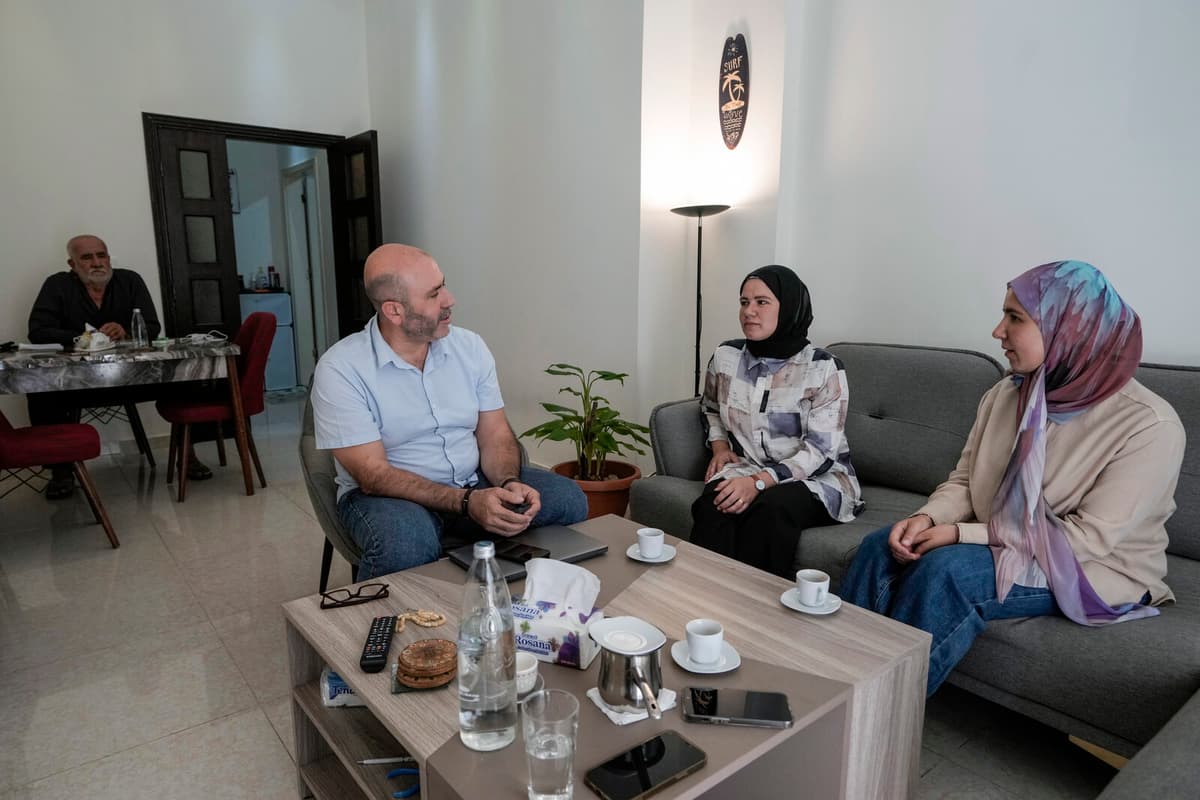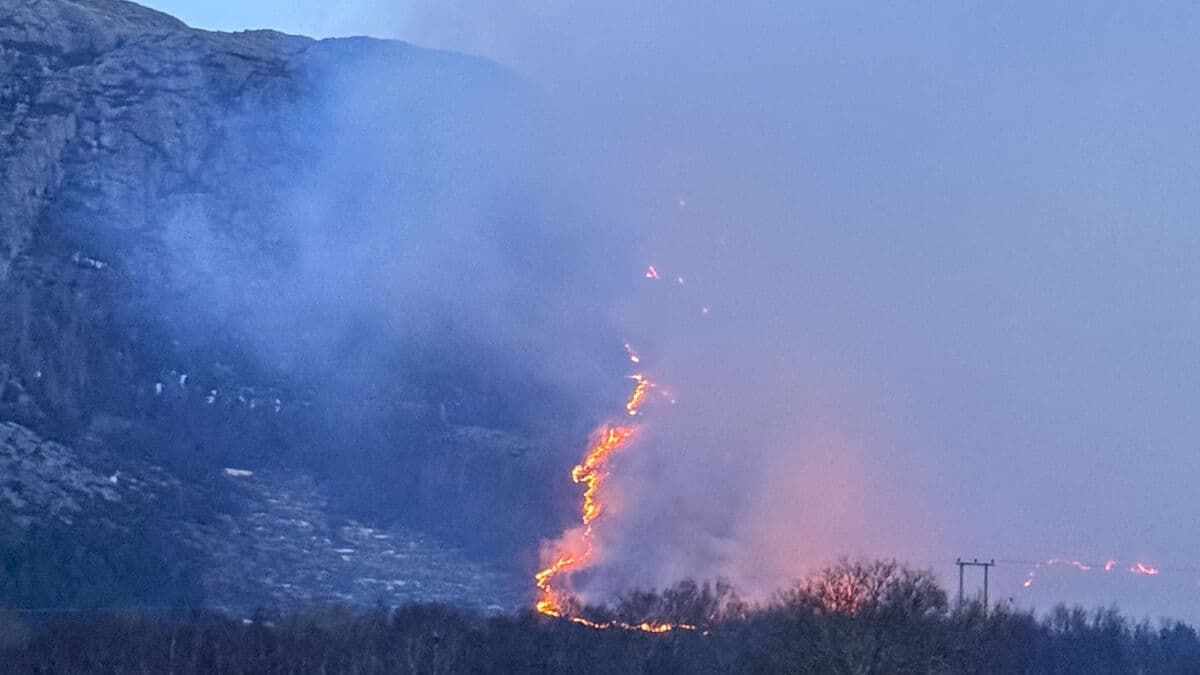Ayman Jaber calls the village where he grew up his "habibti", his beloved. The 45-year-old aircraft technician today remembers how he used to meet his childhood sweetheart near a relative's house.
I used to wait for her there to meet her, he recalls with a smile.
Half the village knew about it.
But today, not much of the village remains. Many other communities in the border area where Hezbollah, according to Israel, has tunnel systems have also been destroyed.
The family moved in
When the border conflicts began last year, Ayman lived in Aramoun, south of the capital Beirut. The rest of the family was evacuated from Mhaibib. Some of them fled to Syria. Father and the two sisters Zeinab and Fatima moved in with Ayman.
In the living room, the siblings drink Arabic coffee while their father smokes. Zeinab says it breaks her heart to see her father.
He is 70 years old, frail and has been waiting for over a year to return to Mhaibib, says Zeinab.
He left his five cows there. He asks again and again if I think they are still alive.
In the close-knit village with around 70 old stone houses on narrow streets, tobacco, wheat, olives, and the vegetable molokhia were cultivated. Dozens of buildings were also destroyed, including a cemetery where many generations of family members were buried.
The school where the sisters went in nearby Mays al-Jabal has been destroyed in attacks. Zeinab worked at a pharmacy in Blida not far away. That too has been leveled to the ground.
I belong to no political group. Why must my home, my life, be taken from me? asks Zeinab.
"Gone in an instant"
She says she cannot bring herself to watch a video of the explosions that have spread.
When my brother played it, I ran out of the room, she says.
To process what is happening, Fatima closes her eyes and thinks back to the village. She sees her mother's flowers and how the sun sets over the family's gatherings on the patio.
The house had been built up over many years.
And it was gone in an instant, says Fatima.
The family also fled the village during the war against Israel in 2006. When they came home again, the house was vandalized but still existed.
This time, there is no home to return to. Even a Japanese persimmon tree that the family had planted by the house is gone.
When this war is over, we'll go back, says Ayman.
We'll set up tents if we must and stay until we've built up the houses.






